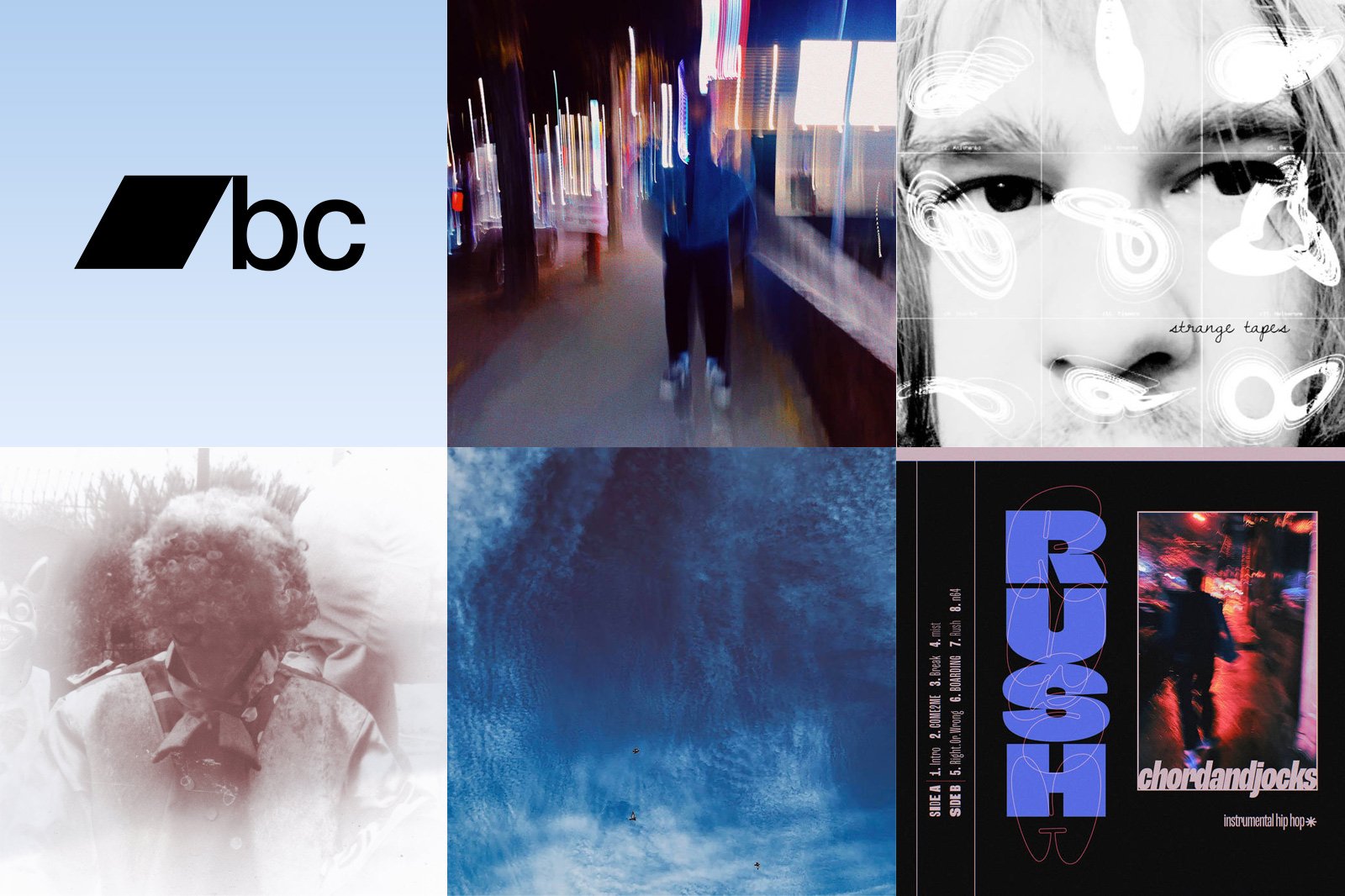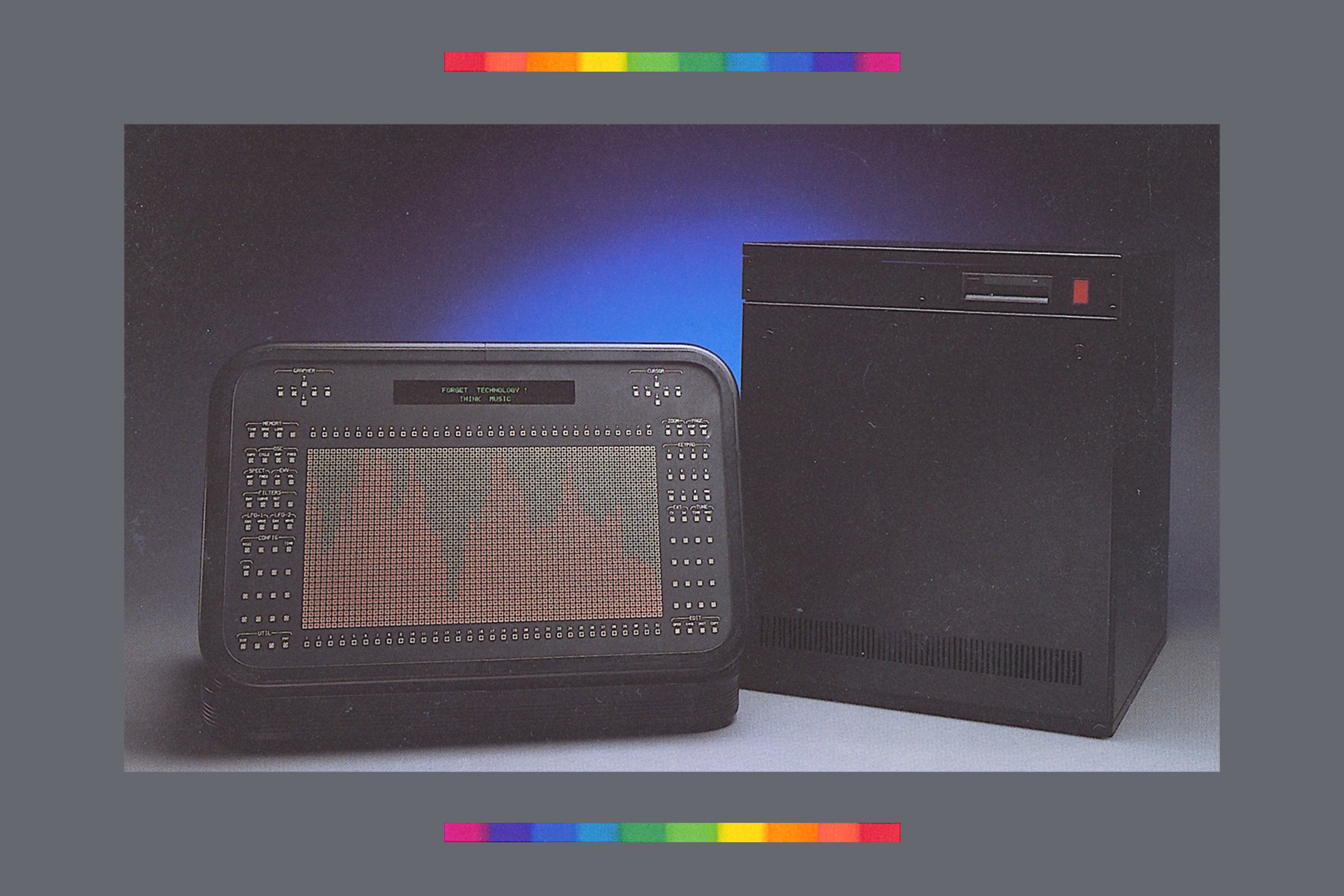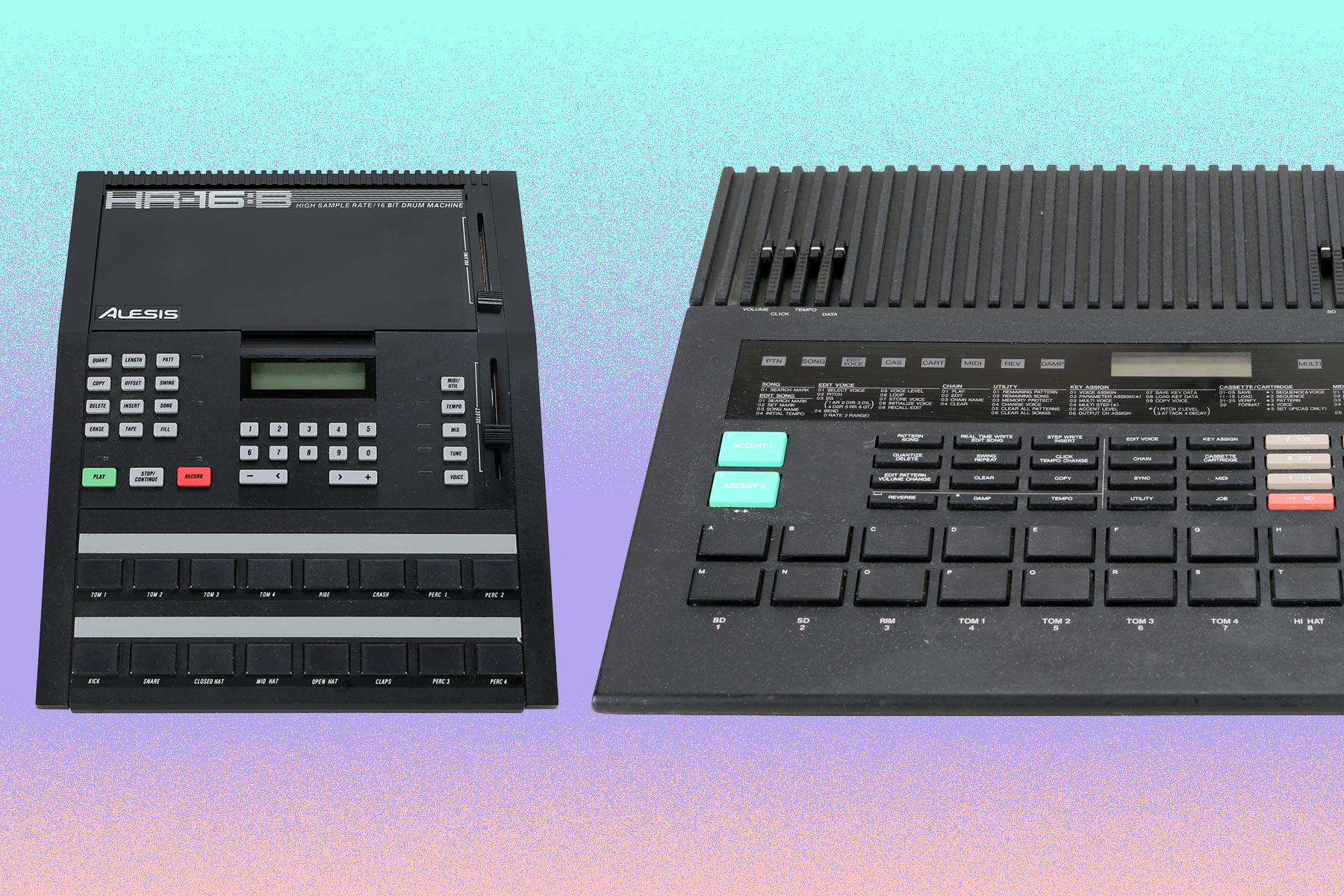It's that time again—Bandcamp Friday is here! Falling on the first Fridays of most months of the year, Bandcamp waives their share of sales on all music, meaning that all proceeds go directly to the artists and labels you love. So whether your favorite band dropped a new EP or there's been something on your long-standing "to buy" list, there's no better day to grab it than today!
Need some recommendations? This article offers a selection of what we've been listening to recently.
Floating Shrine: Connecting
The latest release from the Decaying Spheres label, Connecting is the latest release from Floating Shrine. This collection of seven tracks is absolutely filled with sparse yet stunning ambiences, ensuring that Connecting is a must-listen for ambient music connoisseurs.

We previously covered their prior release, Growth and Decay, nearly two years ago, so it is always a joy to see the progress of an artist's active evolution. Recalling the expansive and occasionally gritty drones and pads heard on that release, Connecting continues in this trajectory while adding new ingredients to its sonic melange. Don't worry—there's still plenty of drawn-out ambiences to be found, but sputtering electronic noise, tumultuous granulations, and gently guiding piano lines round out the sounds heard across these seven tracks.
On Connecting, a greater emphasis is placed on sparse elements bridged together through musical form and effects processing—dare we say, connecting them all into cohesive musical pieces. The first two tracks, "Empty" and "Sitting Quietly," immediately illustrate the greater embrace of digital glitching effects—aliasing, stuttering, bit reduction, and more. "Looking Back" is a particularly open track, primarily consisting of field recordings and a gentle synth melody accentuated with repeated notes. Similarly, "A Moment, by the River" features recordings of water and birds accompanied by bouncing granulations and periodic pseudo-strummed synth chords.
New for this release is also the prominent use of a piano, particularly on tracks like "Empty," "Home," and "Kintsugi." Gently bolstered by echoes, reverse delays, and granular effects, the piano can simultaneously occupy a massive sonic space without overpowering the accompanying pads beneath. The closing track "Always Changing" is a particular high point for me—somewhat ironically given the name, it reminds me the most of Floating Shrine's previous release. But given the six tracks that came before, and the subtle elements heard while listening closely to this one, it still perfectly fits in the context of this release and serves as a satisfying conclusion to Connecting.
Listen to Connecting on Bandcamp!
Dillon Bastan: Strange Tapes
On my first thorough encounter with Dillon Bastan’s music two weeks ago, it was bingo night. While I was a latecomer to Dillon’s music, only familiar with his ingeniously creative maxforlive devices, I had positioned myself amidst the crowd in that downtown LA loft venue just in time to accept my small card of possibility and join the game. As audience members gradually caught wind of the performance about to start, Dillon Bastan, dressed as a cartoonishly old man wrapped in a tweed jacket, anxiously wobbled over a walking cane while crying out through a headset microphone: “I hope I win this time!”.
Beside Dillon was his co-performer, dressed as an elderly woman and occasionally bickering back at Dillon’s character while controlling the spinning bingo machine. As the game got underway, each spin of the bingo cage unleashed a torrent of noise, combining both harsh walls of saturation with obliterated breakbeats that incrementally nudged forward my growing excitement for what was to come. It was immediately apparent that this was no ordinary bingo night, and something more than a cheap gag to break up the serious tone of an otherwise conventionally noisy show. The bingo calls were nonsensical, but the theatrics and heavily distorted ear candy had immersed me in Dillon’s impossible world of levity and strangeness.
The rest of the performance unfolded as a surreal one-act with delightful twists and turns. Dillon’s character does win bingo this time, and promptly dies. Emerging from the ground and removing the old man costume, Dillon appears in the center of the crowd, skin painted all over with black spiral shapes. Creating a web by unraveling a length of string that formed a cumberbund around his waist, Dillon dutifully tasked audience members with holding points of the string, becoming part of the delicate structure he had captured himself within. Using a handmade glove device, Dillon plucks parts of this chaotic web, evoking ethereal string sounds from the computer next to the bingo cage, and developing themes of death and return through utterances over the headset mic. This ritualistic encounter ends with the old man’s resurrection, after which the dream subsides, returning to the scene just before his big win. His counterpart corrects him: the win was merely hallucination, but it doesn’t matter, as Dillon’s character triumphantly states.

For me, the performance’s success is attributable to the immersive world of playfulness, macabre humor, and earnest heart created in the room through theatrics and sound. Exploring more of Dillon’s music on Bandcamp to relive and reconcile its mysterious aura, I encountered his most recent release, Strange Tapes. Released on April 1st, 2024, this collection of demos, tapes, and oddities provides a place to return to Dillon’s world of captivating experimentalism. Created over a two-year period, the multifaceted collection of noise, electroacoustic collage, and lo-fi songs offers a window into Dillon’s practice in sound; in his own words, the album represents “a dialogue of habit and noise”.
The first track, “Forgotten” sets a scene for the remaining tracks to come, offering a blend of components used on the album. A broken cassette loop iterates itself throughout the piece, with Dillon’s breathy vocals occasionally interjecting. As degraded vocal layers sputter over the incessant loop, a highly saturated guitar tone enters to sing along. Suddenly, an energetic, fuzzed-out guitar line takes over, with diamond-cutting saturation that percolates in the stereo field. Here and across the album, Dillon commits to brevity, never allowing us to savor the many flavors of ear candy presented for long enough to grow sickly sweet. In a breath, Dillon is off to another experiment, pulling us deeper into the world he creates.
While many of the moments on the album present as tender and intimate reflections, plenty of space is reserved for rough and raw noise elements. In “Shriek” Dillon’s cacophonous capabilities are on full display. Blown out distorted loops create layers underneath clean and contrapuntal stereo guitars, while a morphed and mangled vocal presses through thick pads of saturation and feedback. Progressing into total chaos, the vocals become brutal gestures of delayed overdrive feedback squelching. Underneath these overtaking noises, the guitar lines carry on their dutiful progression, reminding us of the dual poles of softness and aggression presented on the album, not at odds, but rather as cohabitants of the world Dillon creates in sound.
Among the sonic collages and walls of noise, Bastan gives us a handful of true songs. “Written on the Wall'' is perhaps the most conventional track throughout Strange Tapes. However, the double-tracked vocal tone, small background details, and the comparatively noisy intro and outro sections maintain the album’s sense of experimentalism and rawness. Regardless, the song rocks. I mean that in the sense that I find myself bobbing along without trying, especially on the recapitulation of the full band drum beat around 1:42. I want to hear more of this band, but Dillon is already off again to a new piece, and I’m keen to follow.
Despite traversing diverse terrains of Bastan’s sonic efforts, an idiosyncratic sense of identity is maintained in the mix of acoustic and heavily effected and computerized sound throughout the album. Tracks like “Memory” evoke the earnestness of human emotion in the steady pulse of its guitar and bass riff, while haunting vocals and field recordings fill the background space, their washed-out reverberations creating a distinctly somber representation of modern anxieties.
I simply love albums like this. Exploring back catalogs and scratch tapes, one can exist in the world of an artist’s creative practice, if only momentarily, rather than merely consume its most polished products. It feels like something I wasn’t supposed to access, and yet I’m so glad I did. I think you will be, too.
Listen to Strange Tapes on Bandcamp!
chordandjocks: RUSH and 90s

In preparation for the much ballyhooed 404 day at the beginning of April, a deep dive into the prolific and vibrant world of beat makers led me to the Bandcamp page of Jordan Cox, aka chordandjocks. The page is filled with excellent beats, with the most recent full albums RUSH and 90s in particular having exceptional sounds and tasty samples—a great listen for any time of day. Many beat/mixtapes are pretty short, with songs serving as amuse bouches to satisfy the ear before moving to the next. In similar fashion, both RUSH and 90s are short and satisfying listens, so might as well grab both. In fact, you can grab their entire body of work for about $10, but we'll just look at some standouts.
"mist" from RUSH is one of my favorites that has an excellent feel with tasteful effects and a hi-hat pattern that is precise and loose. Right after that, "Right.Or.Wrong" brings a retro-vapor-mall mood that is punctuated by a percussive bass slide, which makes it hard to keep your neck intact.
90s is a short four-track release that brings you right into the feeling of the titular decade using vocal samples woven in on the opener "soFine//midnite" which ends with a smooth sax that is straight from an easy listening FM station. The final track, "boarding..." centers around a catchy, crisp piano sample that just carries you through the track and is something that could easily loop for a while without getting stale.
Produced using mostly the classic and MKII SP-404, chordandjocks shows clear expertise on this instrument, presenting a clear argument for the 404 being an instrument in its own right: more than just a tool, but a vessel for creative expression.
Check out RUSH and 90s on Bandcamp!
Bégayer: Évohé Bègue
I must confess that my knowledge of Bégayer (pronounced bay-gah-yay, meaning "to stutter" in French) isn't extensive. Piecing together scattered bits of information from across the internet, along with my personal listening experience, I can sum it up as follows. Bégayer is a quintet hailing from Southeast France. The group is known for their eclectic use of electronic and acoustic instruments—including peculiar hand-made inventions, circuit-bent toys, and radios—to craft a captivating sonic multiverse that seamlessly blends noise with folk. Their music feels simultaneously ancient and modern, merging free improvisation with ritualistic tradition.

Their latest release, Évohé Bègue, provides a profound glimpse into the collective's uniquely open and expressive musical dialect. This album is a compilation of nine excerpts from multiple long-form improvisations recorded between 2021 and 2022 across various contexts and locations. Some tracks have had voices and embellishments layered on post-recording. Listening to Évohé Bègue is akin to navigating through a densely populated, culturally diverse ancient city in some alternate universe. It resonates with deep humanity, albeit in a state of painful transformation. Wailing voices are underpinned by aggressive polyrhythmic percussion, with animal-like squeals and sputters from mildly abused electronics. The overall effect is both eerily familiar and profoundly distant.
The album commences with "Aède bègue", a minute-long solo on what resembles a type of fiddle, with the sample periodically contorted into a disorienting, intensifying rhythm. The ensuing track, "Grimpe une pige", immediately introduces a throbbing drum pulse that is gradually enveloped and ultimately overtaken by a dense weave of warped, characteristic singing, trilling lutes, and feedback-laden electronics. "Bande opaque" then bursts forth with a cascade of distorted, resonant percussion, oscillating between distinctive marching cadences and the edge of utter chaos. Following this, "Agapes bègues" reduces the tension with a slower-paced contemplative chant, evoking a journey through a sun-baked desert land where spectral echoes of both human and non-human origins intermittently align with the adust vocal melody and sparse beat. The album concludes with "Prèche bègue", a tumultuously intense amalgam of creaking, abstract electronic textures, crushing layers of percussion, and a struggling, stuttering voice that seems more possessed than performative.
Ultimately, Évohé Bègue resists easy categorization or comparison, existing in a realm where even the term "experimental folk" might be considered an understatement. Bégayer’s approach to composition and performance is like alchemy; they transform the raw elements of sound into something mystical and profound, challenging the listener’s expectations at every turn. Most importantly, the collective manages to craft these layers of sound into a cohesive whole that speaks to and reflects the complexities of human emotion and cultural expression.








